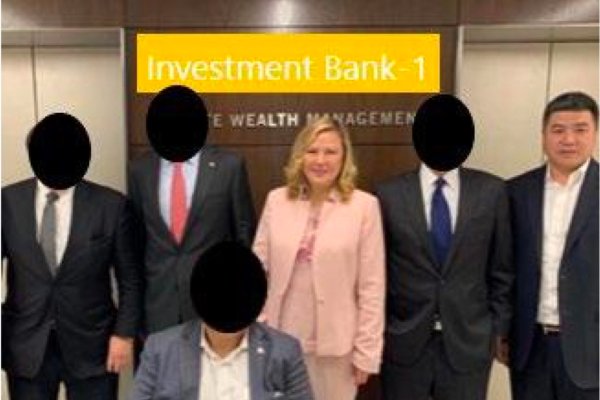Two individuals involved in the “American China City” project, which was arrested in 2022, have recently been sentenced for their roles in a large-scale, multi-tiered fraud case totaling $30 million involving over 170 Chinese investors. Project manager Lianbo Wang was sentenced to 60 months in prison, while the main suspect, Long Island businesswoman Sherry Li, is expected to face trial by jury in May next year.
In 2013, Li first appeared in the public eye when she claimed to build a $6 billion Chinese-themed park called “China City of America” in a town about 100 miles northwest of New York City. The project, initially planned to cover 600 acres near the Catskill Mountains in Thompson Town, was intended to include a Chinese-style theme park, luxury residential area, university for 1,000 students with dormitories, and offices for each Chinese province within the park.
After local officials denied approval for the “Chinese-style Disneyland,” the project shifted to developing the “Thompson Education Center” (TEC), a private university town. Using Li’s photo with US political celebrities as a promotional gimmick falsely claiming government support, the duo attracted many Chinese investors. Li posed as the president while Wang served as the marketing director and general manager of TEC.
According to court documents, Li and Wang meticulously planned a nearly decade-long scheme using the EB-5 immigrant investor program to promise investors Green Cards in exchange for $500,000. Funds were transferred from Chinese investors to Li’s multiple empty company accounts via banks once obtained, which the defendants spent lavishly on personal expenses including clothing, jewelry, housing, travel, fine dining, and political contributions.
To advance the fraud, Li, Wang, and their co-conspirators convinced Chinese investors that TEC was a multi-phase project. The first phase included constructing university buildings, student activity centers, a gym, a community center, and six dormitories. These dormitories consisted of villas, two-bedroom apartments, and three-bedroom apartments totaling $150 million with $60 million from 120 EB-5 investors and the remainder from other sources.
The pair falsely claimed that TEC had guarantees for Green Cards, local government approval with ongoing construction, auditing by a major accounting firm, collaboration with an investment bank for listing on the NYSE, partnerships with renowned universities for student enrollment, and political connections ensuring regulatory approvals. Despite the lack of real estate development records and credibility, over 170 Chinese investors invested at least $30 million in TEC based on these false statements.
Moreover, Li and Wang acted as straw donors, using their names to donate to US politicians with actual funding coming from investors, potentially involving illegal participation in US politics by Chinese citizens. For instance, during a fundraiser for the then-US President in June 2017, Li and Wang promised Chinese attendees access to political figures through paid entrance, using the opportunity to attract investment for TEC. Each of the 12 Chinese investors paid $93,000 with some funds going towards donations, making Li and Wang the top contributors.
Li and Wang were arrested on Long Island in July 2022, and in October 2022, the Eastern District of New York Federal Grand Jury brought forth charges of 12 counts including telecommunication fraud, money laundering conspiracy, illegal currency trading, and conspiracy to defraud the US against Li, Wang, and their Chinese co-conspirator, Guo Xuefeng.
Wang pleaded guilty in March 2024 to illegal currency trading and conspiring to defraud the US. Before his sentencing, Wang’s defense lawyer and relatives sought leniency for him. Originally from Heilongjiang Province in China, Wang faced hardships including marital breakdown and financial struggles upon immigrating to the US in 2005, eventually getting entangled in legal disputes as he worked alongside Li, who led him into the fraudulent scheme.
Despite limited education and language barriers, Wang’s lawyer described his inadvertent involvement due to misplaced trust in Li and his remorse following arrest, taking responsibility for his actions. During his incarceration, Wang found solace in faith, aiming to rebuild relationships with his family, studying English, completing educational and religious programs, and showing remorse for his offenses.
In the sentencing phase, prosecutors highlighted Wang’s direct involvement in deceiving investors with false promises, leading to severe financial losses for victims who believed in the fraudulent scheme, emphasizing a cycle of greed and deceit. Ultimately, a judge sentenced Wang to 60 months in prison for each of the charges, to be served concurrently.

